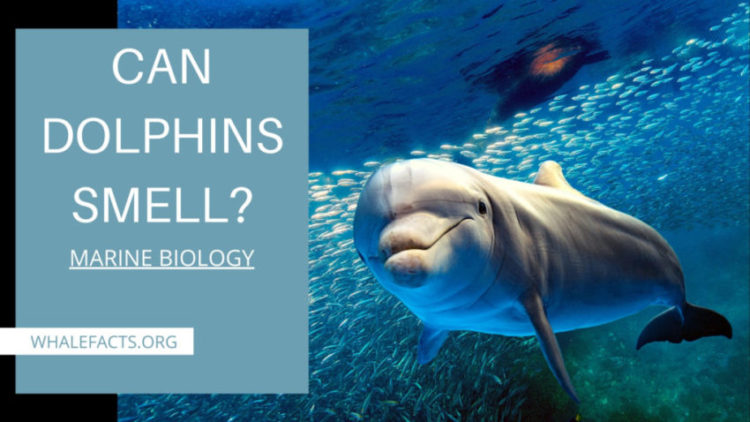The short answer to that question appears to be no, or at least there seems to be a strong indicator that dolphins do not have a sense of smell.
While researchers believe that these marine mammals are incapable of smell dolphins, do appear to have olfactory tracts during their fetal stage of development (which is necessary for smell). Still, once they are born, they apparently do not show any olfactory nerves, so their sense of smell appears non-existent.
In fact, as marine mammals, it would seem that dolphins don’t need this particular sense to thrive and survive in the ocean due to the strengths of their other senses, which easily makes up for their lack of smell.
Their eyesight both in and out of the water (for most species) is incredibly acute. They are capable of hearing frequencies at least several times higher than what human beings are capable of hearing. Note: A few species are known to have poor eyesight, but their use of echolocation makes up for this.
A dolphin’s sense of touch is also quite sharp, thanks to densely packed nerve endings throughout most of its body. In addition to this, dolphins have the ability to taste despite their lack of a sense of smell. However, the extent of their taste buds is not fully known.
Dolphins in captivity have been known to show preference regarding certain types of food. This preference is based almost entirely on a sense of taste. In fact, it is thought that this remarkably acute sense of taste may replace their sense of smell.
While a sense of smell may be all but useless when underwater, a sense of taste would be invaluable. A dolphin can likely taste substances in the water as it is swimming. This might alert the dolphin of what is in its surroundings in the same way that a sense of smell would for a land animal. This is still just a theory, however.
More research needs to be completed before scientists can decide once and for all if a dolphin’s sense of taste can function as a sense of smell. Perhaps more importantly, the dolphin’s ability to use echolocation helps them navigate the ocean, even in completely dark waters.
Echolocation works by bouncing sound waves off of nearby objects and listening to the echo that returns. The time it takes for an echo to return along with its angle and acoustic vibration can tell dolphins how far an object is, what direction it’s in, how fast it’s moving, how large or small it is and if it’s dense or hollow.
This allows dolphins to navigate the ocean, search for prey and avoid potential threats from predators. In fact, the ability to echolocate appears to be significantly more vital to a dolphin’s ability to survive than having an ability to smell.
Although a dolphin’s senses are all critical to its survival, a sense of smell is one thing that it lacks. Dolphins are definitely amazing creatures that are remarkably similar to humans and some land animals in several ways. Still, they cannot smell their food or their surroundings like we can (at least as far as we scientifically know at this point).
